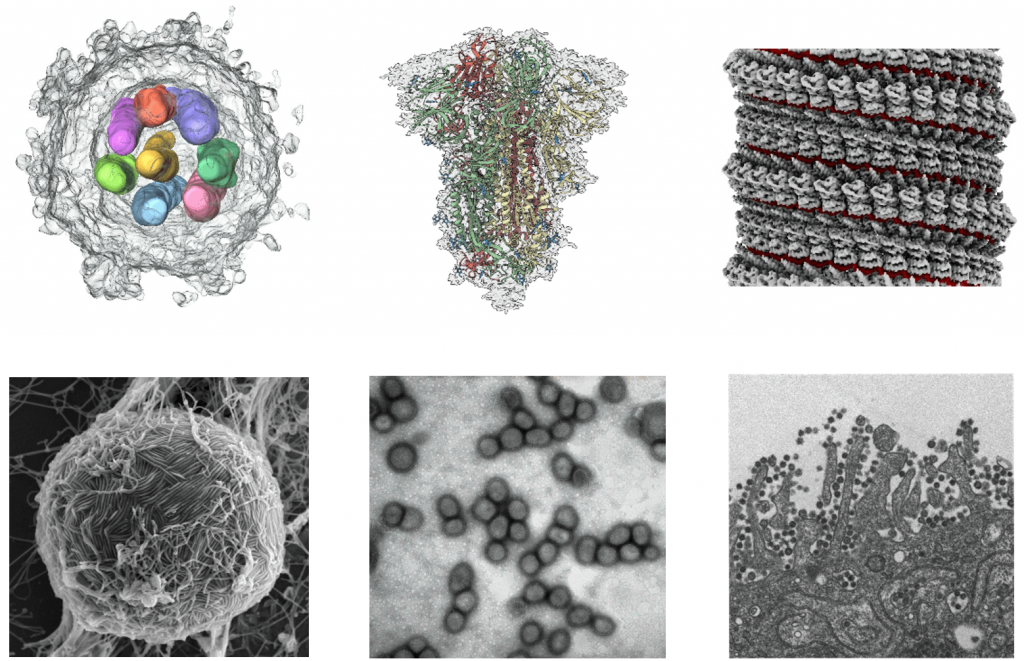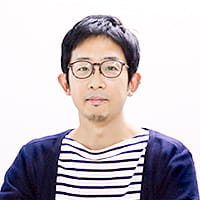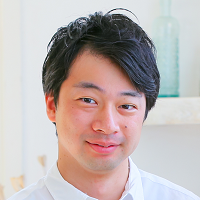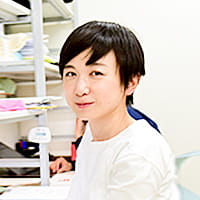Research summary
Research outline
From ancient times to the present, we have always been threatened by various viruses. Our laboratory studies highly pathogenic human viruses such as influenza virus, Ebola virus, and SARS-CoV-2. Our goal is to understand the mechanisms of virus replication and pathogenesis at the molecular, cellular, organ, and individual levels. The strongest point of our laboratory is the use of state-of-the-art structural techniques such as cryo-electron microscopy, three-dimensional electron microscopy, high-speed atomic force microscopy, as well as conventional virological and molecular/cellular biological techniques.
Main themes
- Mechanism of influenza virus replication
- Structural analysis of Ebola virus
- Studies on replication and pathogenesis of SARS-CoV-2
- Structural analysis on virus neutralization by antibodies
- Mechanism of arenavirus persistent infection
- Identification of virus entry inhibitors for antiviral drug development

(top left)An influenza virus particle reconstructed by electron tomography
(top middle)Structure of SARS-CoV-2 S protein determined by cryo-EM
(top right)Cryo-EM structure of Marburg virus NP-RNA complex
(bottom left)SEM image of an Ebola virus-infected cell
(bottom middle)Negatively stained influenza virus particles
(bottom right)Ultrathin section image of SARS-CoV-2-infected cell
Member
|
NODA, TakeshiProfessor |
t-noda*infront.kyoto-u.ac.jp See faculty information |
|---|---|
|
SUGITA, YukihikoAssociate Professor |
sugita.yukihiko.8w*kyoto-u.ac.jp See faculty information |
|
MURAMOTO, YukikoAssistant Professor |
muramo*infront.kyoto-u.ac.jp See faculty information |
- Please note that the @ symbol has been replaced by *.
Access
University Hospital, West Campus, Institute for Life and Medical Sciences Bldg. No.3



